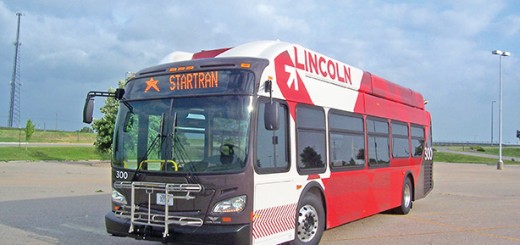The Fight for Nebraska Football

by Brian Rosenthal
When it comes to navigating a normal college football schedule with few interruptions,
no coach in the nation has experienced worse fortune than Scott Frost.
In only his second year as a head coach, at Central Florida, Frost’s team became victim to two games either cancelled or postponed because of Hurricane Irma in 2017. The Knights won their season opener, then went 23 days without playing another game. Not ideal.
A year later, Nebraska football fans eagerly awaited the much-anticipated debut of Frost, the Nebraska native and former national championship quarterback for the Huskers, as head coach of his alma mater. Fans’ excitement in Lincoln increased throughout the day, as the 7 p.m. kickoff with Akron grew closer.
The loud, packed Memorial Stadium crowd reached an ear-piercing crescendo during the team’s famed Tunnel Walk entrance, led by Frost himself. Finally, the game kicked off, and the Frost era could begin.
Only, it didn’t. Severe weather lurked, then arrived. A storm system that many times in Nebraska would pass through in, oh, maybe 30 minutes, this time decided to rest over Lincoln for hours.
The game was cancelled. Nebraska would instead open its season a week later, against arguably a more formidable opponent, former conference rival Colorado. That resulted in a close loss, the start of a frustrating 4-8 season.
If somebody had told you then that Frost and Nebraska, two years later, would face a scheduling fiasco 10 times worse, something unfathomable and unprecedented, you’d likely look at the person as if you saw someone with three heads.
Yet, here we are, in 2020, a half year into a global pandemic that, among many more important concerns, shut down spring football for Nebraska after only one practice. Even then, few thought the COVID-19 coronavirus outbreak would wreak havoc on the fall season in the manner it did.
You can thank Nebraska—its administration, coaches, players and parents—for saving a Big Ten football season.
“We were one of the teams that really fought to be able to play, and I’m glad we did that,” Frost said. “We’re going to have to comply with any and all restrictions and qualifications in order to be able to play, we’re going to be as careful as we can. We want to give our student-athletes the opportunity to do what they came to Nebraska to do.”
Drama ensued when the Big Ten, on August 5, announced a revised, shortened schedule in light of the pandemic. All seemed well. That is, until the Big Ten, only six days later, announced it would cancel the 2020 season out of caution and uncertainty of the virus. Perhaps playing in the spring would be a viable option.
Chaos ensued. Particularly in Nebraska.
Upon the announcement, Frost openly said Nebraska would be prepared to play, even if it had to schedule games against nonconference opponents. That created a firestorm of misunderstanding and vilification of Frost from the national media. They told Nebraska to “stay in your lane.” Some incorrectly reported Frost wanted Nebraska to leave the Big Ten (yet nothing could have been further from the truth). Still, Nebraska felt the need to release a statement saying it would adhere by the Big Ten’s rules, and that it was a proud member of the conference, with no intentions of leaving.
For whatever reason, the national media continued to point to Frost and Nebraska as a villain for even questioning the Big Ten’s decision. In a league that historically abides by its leader with no questions asked, one of the newcomers rocked the boat.
“All I really want to say about it is, if I get criticized for fighting for my kids and wanting to play football, I’m OK with getting criticized,” Frost said. “I want fighters. I want guys who aren’t afraid to stand up for what they believe in and aren’t afraid of criticism or afraid of a fight. That’s the attitude I want from our players, and they need to see it from us and know we are fighting for them.”
That marked just the beginning of Nebraska’s mission to play a 2020 season, something a handful of other Big Ten schools soon supported. Nebraska players’ parents were the first to write a letter to the conference, demanding transparency behind its decision, especially questioning the move to cancel the season only days after announcing its revised schedule.
Not long after, eight Nebraska players filed a lawsuit in Lancaster County District Court that contended players would lose a chance for development, exposure for a possible professional career and wouldn’t be able to market themselves to eventually capitalize on name, image and likeness revenue opportunities.
Even the Nebraska Attorney General sent first-year Big Ten commissioner Kevin Warren a letter, demanding more transparency from “a nonprofit operating in the state.” Other Big Ten parents, outside of Nebraska, staged a small rally outside the Big Ten offices in Chicago, also demanding answers and transparency.
Nebraska, though, pushed first, pushed harder and proved more persistent than any other Big Ten school. Ohio State quickly joined forces, yet the national media never questioned the Buckeyes’ intentions the way it criticized Nebraska for going against the norm. Of course, Ohio State is obviously a more established program in the Big Ten, and has national championship hopes this season. Nebraska, meanwhile, has had three straight losing seasons, and hasn’t built nearly enough clout in its 10 years as a Big Ten member.
Regardless the comparison, efforts from Nebraska, Ohio State and a handful of other Big Ten schools to play a revised 2020 schedule eventually paid dividends. In reversing its decision to cancel or postpone the season, the conference pointed to new rapid testing developments for COVID-19 as its justification for the change.
The Big Ten now requires student-athletes, coaches, trainers and other individuals on the field for all practices and games to undergo daily antigen testing. Test results must be completed and recorded prior to each practice or game. Student-athletes who test positive for the coronavirus can return to game competition, but only 21 days following a COVID-19 positive diagnosis.
“The safety protocols established by the conference are the most stringent in the country, and will help protect our student-athletes, staff and coaches,” Nebraska athletic director Bill Moos said. “At Nebraska, we have worked hard since last spring to ensure the safety of our Husker family and are confident of the steps we’ve taken. We look forward to working with the Big Ten protocols and will be ready to play.”
The day the Big Ten announced its reversal to play a 2020 season coincided, unfortunately, with the death of Larry Frost, the former Nebraska player and father of Scott.
“I found out about both things on the same day,” Frost said. “It should have been a happy day, and it wasn’t. Without faith and hope, I don’t know how people get through something like that. I’m just glad I was blessed enough to have that kind of father. I know a lot of people in this country grow up without that type of father in the home, without two parents in the home. I think it’s one of the biggest problems affecting America right now, and I was one of the lucky ones that had a good father that would sacrifice anything for me. It’s my job now to carry that forward and give myself to other people.”
Eventually, football for Nebraska began to return to something resembling normalcy. Conversations finally turned from pandemic fear to quarterback battles – incumbent Adrian Martinez or redshirt freshman challenger Luke McCaffrey? – as well as questions about the defense and special teams. Zoom conference calls replaced in-person interviews for the media, and players, coaches and staff, although unable to lead lives as they previously knew, at least saw a dangling carrot, something for motivation and excitement.
Even if COVID-19 somehow interrupts the 2020 season—as it has in the Big 12, SEC, ACC and other leagues that began their seasons in September—at least Nebraska fought for games in the first place. Who cares if the Big Ten scheduled Nebraska at Ohio State and home against Wisconsin to begin a conference-only, 10-game season? Bring it on, says Frost and players.
“Our guys have been together longer than most teams have,” Frost said at the outset of the Huskers’ first fall practice. “Right now, we have a pretty tight-knit group, and I think they are focused on becoming the best team that they can.”




Recent Comments